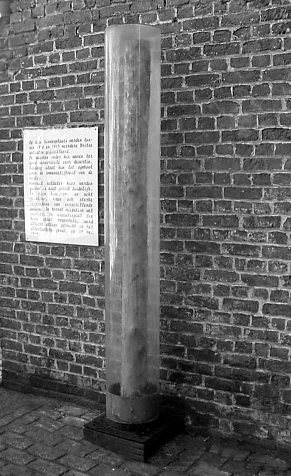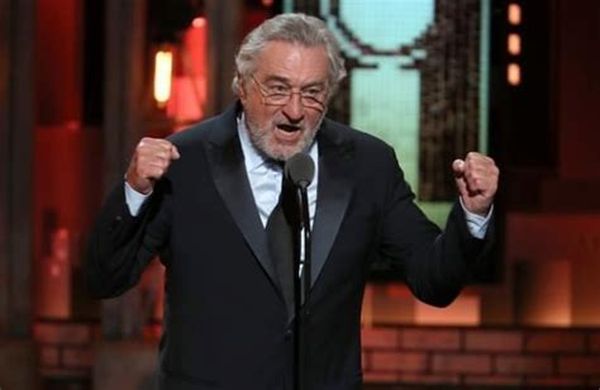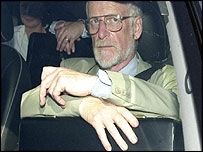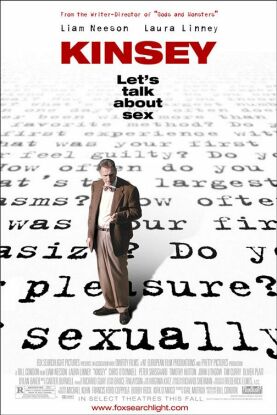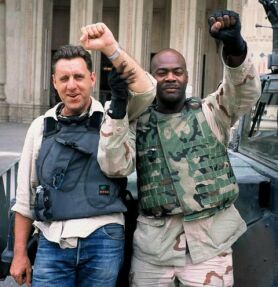Versions of the Truth
From The New CriterionExecution post at Poperinge
Here, in this little Bay,
Full of tumultuous life and great repose,
Where, twice a day,
The purposeless, glad ocean comes and goes,
Under high cliffs, and far from the huge town,
I sit me down.
For want of me the world’s course will not fail;
When all its work is done, the lie shall rot;
The truth is great, and shall prevail,
When none cares whether it prevail or not.
There is some consolation, I suppose, in the fact that Coventry Patmore’s “Magna Est Veritas” was written long before today’s hype industry bestrode the world like the malign colossus it has since become, and so the poem must be supposed to describe a sad truth about the human condition rather than one of the sad truths peculiar to our own world. Among these, perhaps, is the fact, which Patmore could hardly have foreseen, that people now go on caring long after they would once have been content to allow truth to assume its eventual dominion. In August, the British minister of defense, Mr “Des” Browne, finally yielded to pressure from the families of the 306 British soldiers of World War I who were shot for desertion or cowardice or other breaches of military discipline and posthumously pardoned the lot of them — though we know that they included a number of murderers and rapists — for the sake of those who were said to have had undiagnosed cases of shell shock.
The point wasn’t just that the families of the executed still care enough 90 years later to make the case on behalf of men that few if any of them can ever have met but that Mr Browne could assume he wouldn’t pay any political price for his action. There was hardly anyone left of what would once surely have been the majority who could have been counted on to have cared enough to take offense at it. Whatever may have been the truth about these executions, it was those who didn’t themselves have any stake in the matter — those whom we once would have complimented by calling them “disinterested” — who stopped caring first, so becoming disinterested in the more up-to-date sense of “apathetic.” Thus the field of truth was left in the possession of the aggrieved families, full of passionate intensity on behalf of their ancestors’ loved ones.
More than anything else, it is the cult of the victim, which is as near as we get to having an established religion these days, that has this kind of power to make people go on caring long after they might once have been expected to stop — perhaps even for centuries, as we see from the advocates of “reparations” for slavery. Those who expect such payments, presumably to be paid for out of the tax revenues of 300 million Americans none of whom have ever owned slaves or had anything to do with slavery in their lives — any more than their parents or grandparents or, in most cases, their great-grandparents have — obviously recognize no statute of limitations upon their claims to victimhood. True, the calculations change when there is pecuniary advantage involved, and the majority is likely to continue caring enough so that such a charge on the public purse is never made. But in a world like ours, a plausible stake in victimhood must be regarded as a long-term asset capable of yielding plenty of other satisfactions besides the merely monetary kind.
Among these we may count the ability to wring an apology from the president of the United States on behalf of those long dead slave-owners — who, of course, never asked that president, Bill Clinton, to be their spokesman and whose own contrition or lack of it could only be a matter of speculation. But it’s an easy thing to do to apologize for something you haven’t done and much harder to apologize for things you have. The truth of Bill Clinton’s presidency, particularly as it dealt or didn’t deal with the approaching war against the jihadists, is still a long way from being something that no one cares about. Those of us who are Bill Clinton’s rough contemporaries and older will not live to see the day when there’s no one left alive who cares enough to conceal the truth that President Clinton’s failure to take seriously the threat Osama bin Laden and al-Qaeda proved to be disastrous for his country.
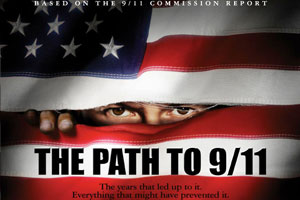 |
It was thus predictable what would happen when Cyrus Nowrasteh and David L. Cunningham tried to jump the gun on posterity with “The Path to 9/11,” the miniseries broadcast on the fifth anniversary of the terror-attacks on ABC last month. The Clintonites’ outrage forced the film-makers — or rather, forced ABC to force them — to bowdlerize the show in order to make it less offensive. And, of course, less true. The trouble was that Messrs Cunningham and Nowrasteh took the easier, though often more direct, fictional route to the truth and so let themselves in for the inevitable charges of making things up. We were told, for instance, that the scene in the original version of the film in which a mixed force of Afghan troops of the Northern Alliance and US operatives stole into Osama bin Laden’s camp in the dead of night and prepared to kill him as he slept never actually happened. Nor, obviously, did the decision, as depicted in the film, by Mr Clinton’s National Security Adviser, Sandy Berger (Kevin Dunn), not to pull the trigger.
Mr Berger is clearly right to protest against this false and malicious portrayal of his actions. He never abruptly hung up a satellite phone when someone asked him for permission to kill Osama bin Laden, saying, “I don’t have that authority.” Probably, when he was caught stuffing documents from the National Archives down his trousers — not in the movie but in real life — it had nothing to do with any attempt to cover up anything as discreditable to himself as this would have been, if it had actually happened. All the same, we can be pretty sure that the pursuit of Osama bin Laden, like so many other national security operations then and now, was hampered by bureaucratic cover-your-ass tactics nearly as flagrant as this. When John O’Neill (Harvey Keitel), one of the film’s heroes, says, “So it’s okay if somebody kills bin Laden, so long as he didn’t give the order. . . . It’s pathetic,” can Bill Clinton or anyone else in his administration lay hand on heart and say. . . It’s not pathetic? When the leader of the Northern Alliance, Ahmad Shah Massoud (Mido Hamada) says to Kirk (Donnie Wahlberg), the composite CIA agent in the film, “Are there any men left in Washington, or are they all cowards?” can we with easy consciences laughingly reply that no one at the time could reasonably have asked such a question?
“Coward” is a hard word, even in our post-honor society, but some of its softer equivalents would not, I fancy, have elicited much disagreement even from Mr Clinton himself, who recently said in a speech that “Anytime somebody said in my presidency, ‘If you don’t do this, people will think you’re weak,’ I always asked the same question for eight years: ‘Can we kill ‘em tomorrow?’ If we can kill ‘em tomorrow, then we’re not weak.” What is this but a perfect summing up of the allegedly fictional scene in the movie? It amounts to cowardice on principle, or what Woodrow Wilson once called being “too proud to fight” — except that the Clinton version is even more laughably disingenuous. “I could kill ‘em if I wanted to or needed to, but I don’t want or need to. And anyway it doesn’t matter if people think we’re weak because we’re really not weak.” And so he doesn’t kill them — for, of course, “tomorrow” never comes — but lets them continue to kill us, confining his defense of American life to fine-sounding moral condemnations after the fact.
Is that not also the truth? Under President Clinton, no one apart from the actual perpetrators paid any price for the first attack on the World Trade Center. Nor was there any retaliation for the attacks on American troops in Somalia in 1993, or for the bombing of the American military compound at Dhahran, Saudi Arabia, in 1996, or for the embassy bombings in Kenya and Tanzania in 1998, or for the attack on the U.S.S. Cole in 2000 — just as under President Carter no one but the victims was made to pay for the invasion and hostage-taking at the American embassy in Teheran and under President Reagan no one but the victims was made to pay for the bombing of the Marine barracks in Beirut. Is it not also the truth that anyone who, like Massoud (or Osama bin Laden, for that matter) came out of an honor culture, would regard such a sorry record of non-response towards one affront after another to America’s national honor as the rankest sort of cowardice? We may as a nation decide, like President Clinton and his administration, to turn our backs on such primitive ideas of honor and be cowards on principle, but isn’t it good for us at least to know the truth that among the billion or so people from whom our enemies are recruited — and maybe among some would-be friends as well — we are thus making ourselves contemptible?
But these are the kinds of truths that must hide their heads, or be made to seem more inconsequential or subjective than they are — that’s only your opinion, man! — so long as there are significant numbers of people who care enough to see that they don’t prevail. The Clintonite view that only facts have truth-value and that interpretation is infinitely pliable is what makes it possible to censor “The Path to 9/11” while leaving the media conversation to be dominated by the most appalling lies and falsehoods being peddled by conspiracy theorists of either the respectable or the less respectable kind. It struck me that the same day I read of ABC’s climb-down on an inside page of the Washington Post, the paper devoted the front of its “Style” section to a long and eminently reasonable, on-the-one-hand-and on-the-other-hand analysis by Michael Powell of the views of a number of those who believe that the 9/11 attacks were the work of the Bush administration itself — to justify its subsequent imperial adventures in Iraq and Afghanistan — or possibly the British or the Israelis. The New York Times, the Wall Street Journal, the London Daily Telegraph and Daily Mail and other papers all ran similar stories as part of their coverage of the fifth anniversary of the 9/11 attacks.
These stories followed hard on the heels of some fairly extensive coverage of the first anniversary of Hurricane Katrina which also gave room to the conspiracy theorists claiming that the government deliberately destroyed the levees in New Orleans. To be sure, the tone of most of these stories was one of amused skepticism. Their authors, like Michael Powell, generally took good rhetorical care to distance themselves from the views of the cranks and madmen to whom they were giving so much otherwise respectful attention. But it all reminded me, rather, of the Post’s on-line “Celebritology” column by Liz Kelly whose subtext tells us that its author knows all this celebrity fluff is trivial nonsense — but the fact that she knows it, and the tone of snarky irony that she adopts to show that she knows it, makes it OK for her to spend her life writing about it as if it were not an egregious waste of time. Like Pilate, the media are always asking “What is truth?” and using its supposed inscrutability as a pretext for declaring open house to everyone with a version of truth to try to sell, so long as it is sufficiently arresting or bizarre — and it doesn’t offend anyone whom they can’t afford to offend.
I don’t take too seriously the claim in several of the 9/11 conspiracy stories that a poll has shown that 36 per cent of Americans believe their government had some role, active or passive, in bringing down the Twin Towers and 16 per cent believe, like most of the conspiracy theorists, that they were brought down not by hijacked airliners but by a controlled explosion. A Zogby poll of New Yorkers a couple of years ago found that a near majority professed to believe that their elected government “consciously failed to act” to prevent the catastrophe of 9/11. But such questions sound to a great many people as if they are being asked: “Do you believe everything your government tells you?” Nobody wants to be such a chump as that! Like the conspiracy theorists themselves, such people consider it a mark of their intelligence to be in possession of knowledge that, if it were true, someone would certainly have tried to keep from them. Besides, hasn’t the popular culture for more than 30 years been based on the bedrock proposition that our business, political and military leaders may be presumed to be ruthless, corrupt, self-interested and routinely engaged in cover-ups of their various illegal and immoral acts? The wonder is that there’s anybody left who’s prepared to give those who exercise power the benefit of the doubt.
The danger that the cranks and madmen represent is not so much that people will come to believe their crackpot theories but that such theories contribute to a more general effort on the part of the media to shift the national political conversation away from matters of real importance and onto fantasies and speculations. For all their superior-sounding skepticism towards the details of the various conspiracy theories on offer, the mainstream media share the theorists’ central asssumption, which is that the Bush administration can be shown to be acting in bad faith. The day after Mr Powell’s sniffy survey of 9/11’s lunatic fringe appeared in the Washington Post, both that paper and the New York Times ran as their top front-page stories of the day the supposed revelation in a declassified report of the Senate Select Committee on Intelligence that, as the former’s headline put it, “Iraq’s Alleged Al-Qaeda Ties Were Disputed Before War.” On what basis could such a story possibly be said to be news, let alone the main news story of the day? Had anyone, ever, inside the administration or outside it, said that such ties were not “disputed” — before, during and after the war? Was it conceivable, even, that there could have been no dispute about matters that were necessarily knowable only only on the basis of sketchy and conflicting intelligence data?
No, the point of the story, as about dozens of similar stories over the past three and a half years, was to make, either explicitly or by innuendo, the same claim as the conspiracy theorists, namely that Bush knew. He knew when he set forth his reasons for going to war in Iraq that they were lies, and therefore he must have had some ulterior and discreditable motive for sending American troops into harm’s way. And, sure enough, the paper could count on being able to turn to the President’s political opponents, who have similarly grown used to such lazy ways of thinking, for confirmation of this view. “It is such a blatant misleading of the United States, its people, to prepare them, to position them, to, in fact, make them enthusiastic or feel that it’s justified to go to war with Iraq,” the Post quoted the tongue-tied Democratic senator, John D. Rockefeller IV of West Virginia, as saying. “That kind of public manipulation I don’t know has any precedent in American history.”
Well, it’s a possible view, of course. But just for a moment, just as a thought experiment, let us suppose that the President is not, after all, a liar, a murderer or a war criminal. Suppose, further, that he and his minions did not deliberately smear Valerie Plame in order to punish her husband, the strikingly veracious Ambassador Joseph Wilson, for blowing the whistle on their lies about the Iraqi Weapons of Mass Destruction. Oh, wait. Back up. That one, we now learn, happens to be true. It was all just a bit of gossip from Richard Armitage over in the State Department. And now all those miles of videotape, all those acres of newsprint and all those gallons of ink devoted to “Plame-gate” can be tossed into the landfill along with the career in government of Lewis, “Scooter,” Libby. Nobody cares anymore, so the truth has prevailed — at least until Miss Plame’s book comes out with a new claim to victimhood. But if the many other charges of bad faith against President Bush should also be unfounded, what then? Why, we should have to start asking whether or not, honest and well-intentioned though he undoubtedly is, his administration has done a good job.
And who would stand to lose if such a question were to take the place of those aimed at exposing him as a double-dyed villain and a monster without precedent in the annals of the American presidency? Hm. Let me think. By the same token, who stood to gain from the fact that the frenzy of reporting inspired by Bill Clinton’s dalliance with Monica Lewinsky back in the 1990s sucked up all the media oxygen so that it occurred to almost no one to look more closely into such matters as his record on Islamic terrorism? If I were inclined to dabble in conspiracy theory — which, of course, I’m not — I would want to give some careful consideration to the hypothesis that both of our last two presidents deliberately engineered a media wild goose chase of which they themselves were the victims, confident in the assumption that their political enemies would be so blinded by their hatred for them and their own perspicacity in sniffing out hidden truths that they would join in the hunt and so neglect the legitimate business of opposition. We cannot know, of course. But eventually the truth will out.
Discover more from James Bowman
Subscribe to get the latest posts to your email.

